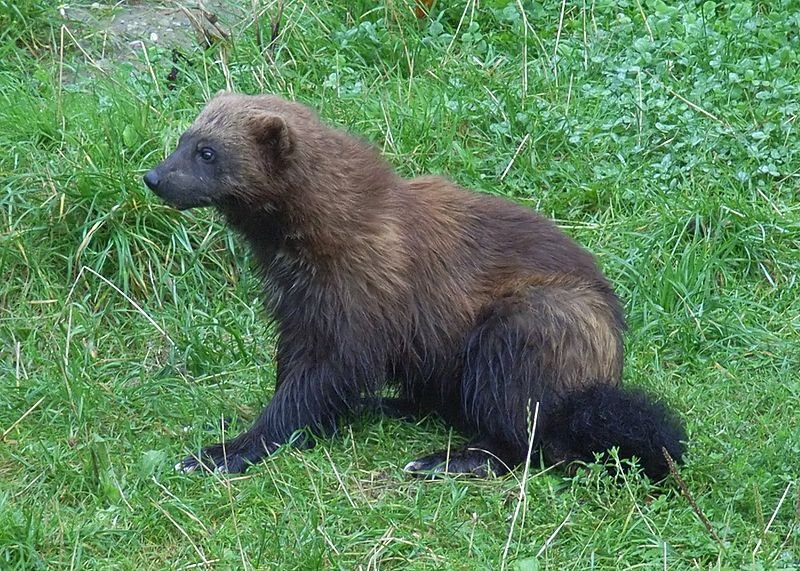For Immediate Release, May 27, 2022
|
Contact: |
Perry Wheeler, Earthjustice, (202) 792-6211, pwheeler@earthjustice.org |
Court Restores Wolverine Protections While Agency Reconsiders Endangered Species Decision
MISSOULA, Mont.— In a victory for wolverines, a Montana District Court decided late Thursday to restore the species as a candidate for protection under the Endangered Species Act. The court agreed with conservation groups that wolverines need additional protections while the U.S. Fish and Wildlife Service reconsiders its 2020 decision not to protect the species as threatened or endangered.
“The wolverine deserves protection under the Endangered Species Act, and this is a step toward ensuring the species does not suffer additional harm before that happens,” said Amanda Galvan, associate attorney with Earthjustice’s Northern Rockies office. “FWS previously ignored key studies that illustrate the threats the wolverine continues to face due to global warming. By reviewing a more complete picture of the species’ circumstances, we are hopeful that the agency will identify the need for increased protections.”
“Wolverines desperately needed this good news, but it’s time to follow the science and finally grant them the full life-saving protections of the Endangered Species Act,” said Collette Adkins, carnivore conservation director at the Center for Biological Diversity. “With wolverines facing dire threats like climate change and habitat loss, the Fish and Wildlife Service can’t waste any more time.”
As a candidate species, the wolverine will be afforded certain protections under the Endangered Species Act. Federal agencies must confer with the Service on any action they take that might harm wolverines. The health and safety of wolverines and their habitat must also be considered in planning decisions that could destroy or degrade their critical habitat.
“The wolverine is a test case. How do we protect snow-dependent species in the era of climate change?” said Joseph Vaile from the conservation group KS Wild in southern Oregon. “One thing is certain. Without federal protections, this majestic species will be another climate change casualty.”
“This decision is a victory for wolverines, paving the way for desperately needed protections,” said Jonathan Proctor, Rockies and Plains program director with Defenders of Wildlife. “With Endangered Species Act protections, the wolverine might finally have a fighting chance at survival.”
“The Fish and Wildlife Service has been dragging its feet for far too long,” said Brad Smith, North Idaho director for the Idaho Conservation League. “It’s time to protect wolverines and develop a recovery plan that prevents these amazing animals from going extinct.”
“Wolverines are subject to considerable threats from a warming climate, shrinking snowpack, and increasingly fragmented habitat,” said Dave Werntz, science and conservation director at Conservation Northwest. “Endangered Species Act protections help focus resources and actions to ensure wolverines have a future in the west’s wild landscapes.”
“Today’s decision gives us hope that wolverines could once again roam Colorado’s high country,” said Megan Mueller, conservation biologist at Rocky Mountain Wild. “Wolverines need the protection of the Endangered Species Act to return to Colorado, where high elevation, snowy habitat could help these elusive and fascinating animals survive in the face of climate change.”
Conservation groups filed suit in December 2020 to challenge the Service’s decision to withhold Endangered Species Act protections from wolverines in the lower 48 states, where no more than 300 wolverines remain. The snow-dependent wolverine, which is the largest terrestrial member of the weasel family, is threatened with massive habitat losses due to global warming.
In response to the lawsuit, the Service agreed to reexamine its 2020 decision but did not commit to setting it aside. The court’s decision Thursday requires the agency to return the wolverine to the protected status it held before the agency made its flawed decision.
Earthjustice represents a broad coalition of conservation groups in the lawsuit — the Center for Biological Diversity, Conservation Northwest, Defenders of Wildlife, Friends of the Clearwater, Idaho Conservation League, Jackson Hole Conservation Alliance, Klamath-Siskiyou Wildlands Center, Greater Yellowstone Coalition, Sierra Club and Rocky Mountain Wild.

The Center for Biological Diversity is a national, nonprofit conservation organization with more than 1.7 million members and online activists dedicated to the protection of endangered species and wild places.

